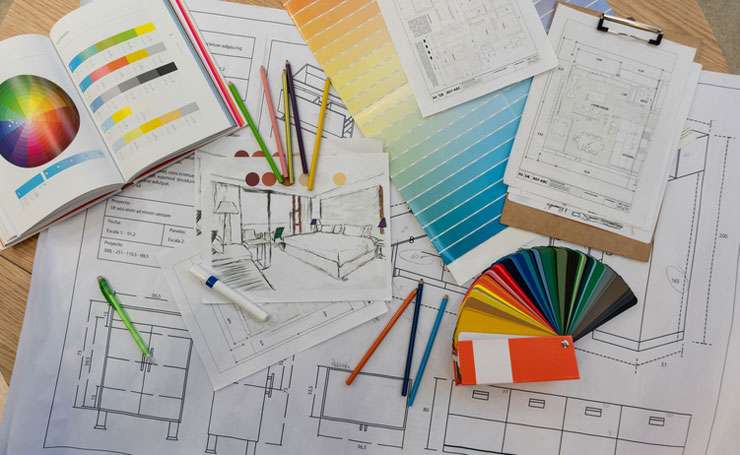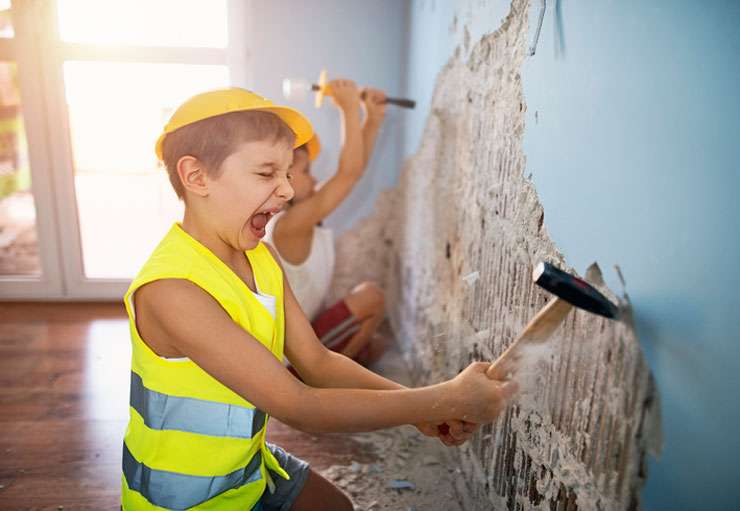Home improvements can take a toll on your body, soul and bank account so it’s important to plan ahead to ensure you don’t make a mistake. Below, OneRoof identifies the most common DIY errors and sets out how you can avoid them.
1. Insufficient planning
The materials used in renovating and decorating your home don’t come cheap and by jumping in without a firm and considered plan, there’s every chance that good money will be wasted.
An effective plan should be in writing and very finely detailed preferably in the form of a spreadsheet – describing exactly the materials and tradespeople are to be used - and when.
Start your property search

A good plan, with professional input, will save you heartache and money. Photo / Getty Images
Getting professional advice is essential, because projects – especially large ones can get messy if all the tradespeople turn up at the same time – or don’t turn up at all, sending your build or renovation right off-track.
2. Unrealistic budgets
It’s a very rare build or renovation that comes in under budget – or even right on what you’d envisaged spending. Like it or not, there will always be variations and inevitably unexpected maintenance problems will be uncovered so it’s incredibly important to take such possibilities into account and have a contingency fund (around 10-15% of the total project cost) or risk spending the next few years in a half-finished house.
Experts point out that getting quotes rather than estimates is crucial because the former enforceable under the law. Involving a quantity surveyor in the early stages, may seem like unnecessary expenditure – especially if the job is relatively small, but never underestimate how much you’ll save ultimately, by dealing with professionals.
When employing tradespeople, be very wary of accepting the lowest quote because it’s possible that they plan to cut corners or spring unwelcome surprises.
3. Skimping on quality materials
If something seems too good to be true, it probably isn’t true, and this certainly applies to building materials – cost-wise -when opting for the cheapest over the best quality available is almost always a false economy.
It doesn’t matter if we’re talking about joinery, paint, fixtures and fittings or appliances, if you aren’t prepared to pay for the quality, there’s every likelihood that the products used simply won’t withstand the test of time.
4. Rushing the job
While they’re great entertainment, TV shows such as The Block can end up giving potential renovators unrealistic ideas when it comes to timing and workflow on a particular project. The shows are filmed in an artificial atmosphere with much of the work actually going on behind the scenes, in order to adhere to what, for most people, would be an impossible timetable.

Getting out the big tools may seem like fun but a rush job can sink a renovation. Photo / Getty Images
It's understandable that you’ll want quick results – especially if you and your family have had to move out of home and may be incurring accommodation costs elsewhere, but good tradespeople shouldn’t be hurried. Remember, their reputation hinges on doing their very best work and they have no wish to hear from you later that aspects of their input are unsatisfactory.
5. Making too many changes in the course of the project
As covered previously, it’s inevitable that changes of plan occur during the building or renovating process but careful preparation and a commitment to the original plan should help keep such changes to a minimum.
While it’s fine to change your mind about a paint colour or something else that is relatively simple, your team isn’t going to be thrilled about major revisions of plan which lead to disruptions and put the timeline out of whack.









